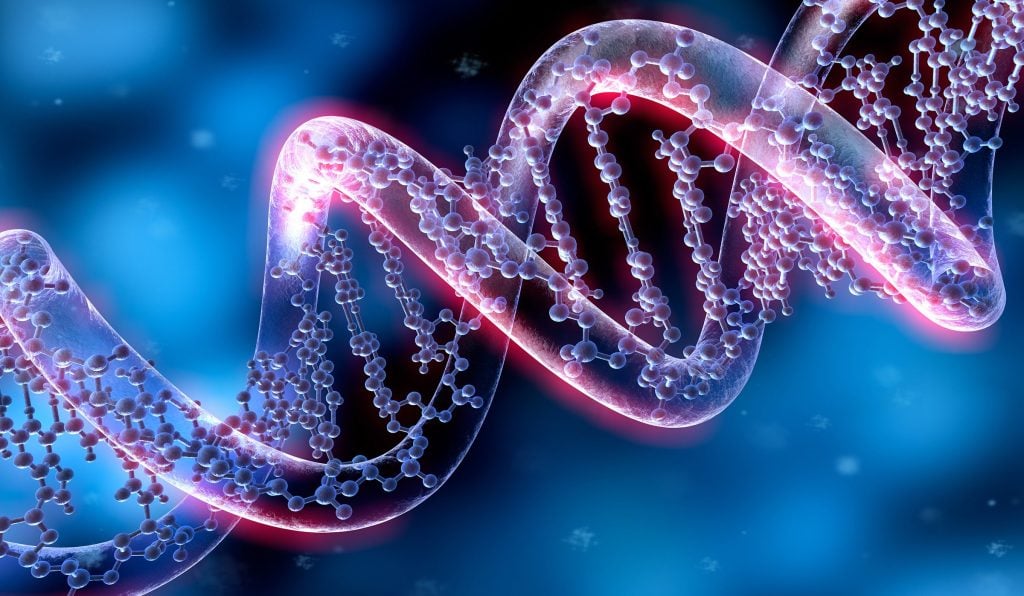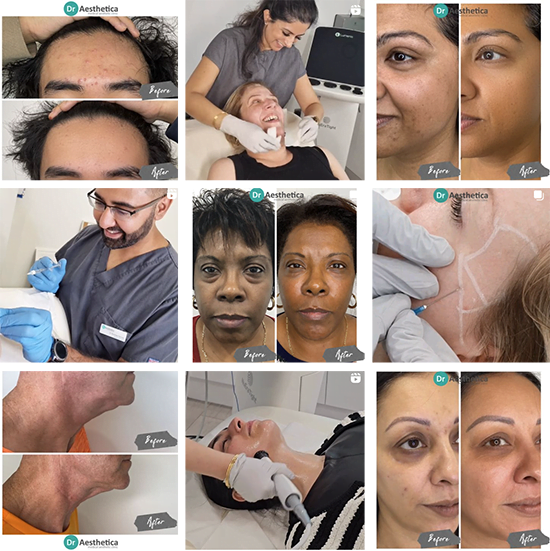Genetics - we’re all born different and some of us are luckier than others. Genetics can play into factors such as webbed feet, diabetes, cystic fibrosis, and down syndrome. Genetics even play a role in our personalities and behaviours! It’s been argued by many that acne is generally a genetic condition, while genetics do play a part in acne that's not the whole story per se…
How Genetics Increase your Likelihood For Certain Conditions?
It’s common knowledge that everyone inherits two copies of each gene, one from each parent. If a particular gene has a mutation or variation that increases the risk of a certain condition, inheriting that variant from one or both parents can increase your likelihood of developing the condition. Some conditions are also caused by many genes interacting, so inheriting several genes with variants that increase risk can also increase your likelihood for the condition.
Your likelihood of certain conditions can also be increased by inheriting certain genetic traits. For example, due to genetics, some people are more susceptible to high blood pressure or high cholesterol, which can increase their risk for cardiovascular disease.
Some genes are also responsible for maintaining important bodily functions by producing proteins, and if there is a mutation or variation in these genes, it can lead to an increased risk for certain diseases or conditions. An example is the fact that mutations in the BRCA1 and BRCA2 genes are known to increase the risk of developing breast and ovarian cancer.
This article was read and reviewed by the face of DR Aesthetica himself - DR Baldeep Farmah.
Why Might your Acne Be Genetic?
Even though there’s no one gene that makes you more likely to have acne breakouts, research scientists have found 15 genome regions linked to developing acne.
Your immune system helps fight off bacteria such as P.acnes. According to a study, genetics can also impact how effective your body is at fighting P. acnes bacteria. P.acnes stimulates oil production in the follicle and causes inflammation, which can lead to pimples.
Additionally, your genetics determine how likely you are to develop polycystic ovary syndrome (PCOS). Acne is a symptom of PCOS.

Your Risk of Acne is Higher if Both Parents Had it
I’m sure you’ve seen many families where it seems acne is present in everyone. Many scientists believe if both your parents have had acne you are more likely to get it and that acne is more of a genetic condition rather than an environmental one.
Researchers also believe that there's a paternal/maternal element in developing acne in the fact that if both parents have acne your mother or father may give you a higher chance of acne than the other parent. But they don’t know for sure if mom or dad’s acne increases your odds more.
So Should I Blame My Folks and What Can I do if I’m genetically at Risk of acne?
Not at all, in fact you shouldn’t even stress about it. There are many solutions to acne that you can read up on here.
How Genetics Have Helped in the Development of Acne Treatments?
Lead author of “nature communications”, Professor Jonathan Barker said this about acne: “The current main treatment has a number of significant side effects. Applying these genetic approaches to acne has never been done before, and it’s a significant leap forward. When you have insight into the genetic basis of a condition, you can develop much more effective treatments”.
This came after Scientists found 15 genome regions linked to developing acne.
They have since then used these genes to develop more effective treatments for acne.
What Other Causes of Acne Are There?
Even though you may have genetics which make you more prone to acne at the end of the day your acne may have another cause. There are many causes of acne and breakouts such as hormonal changes. You can read about other causes of acne here.

Stop Wasting Time!
Yes you heard that right! Stop wasting time reading and get a solution for your acne today. If you're looking to :
- Reduce the appearance of stretch marks, pitting and acne
- Reduce fine lines
- Even skin tone and decrease hyperpigmentation
- And Have glowing self esteem
Then a stem cell Microneedling treatment may be for you, all of the above can be achieved with Microneedling. Additionally Microneedling:
- Takes only 30-60 minutes
- Has results which last up to 200 days
- Is done with anaesthetic for a painless treatment
- Has a downtime of only 24 hours
Feel free to contact us about Microneedling or to view more information on this procedure click here:
Sources:
https://www.kcl.ac.uk/lsm/research/divisions/gmm/departments/mmg/researchgroups/SimpsonLab - genetics treatments
https://www.healthline.com/health/polycystic-ovary-disease - pocs
https://pubmed.ncbi.nlm.nih.gov/10468803/ - parents and acne


